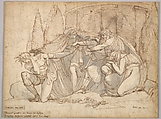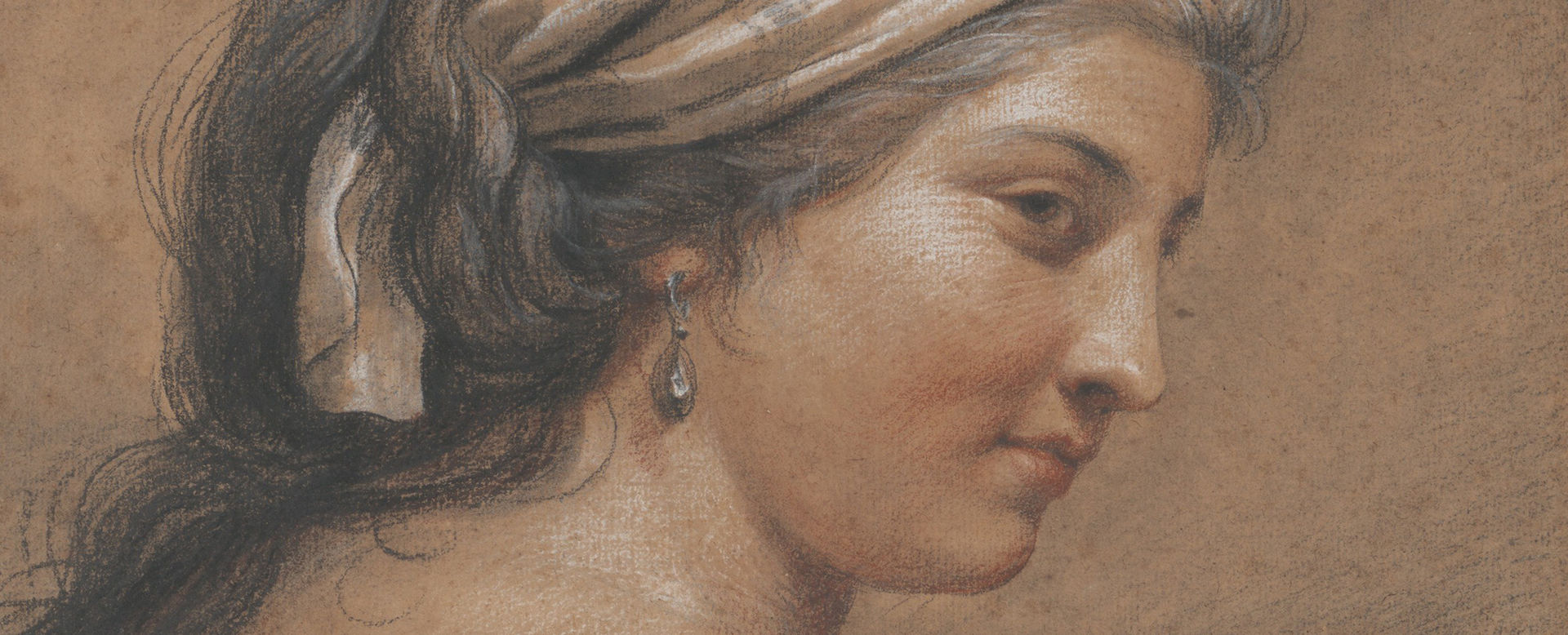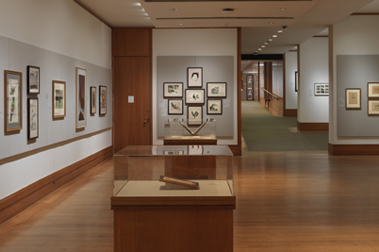Oedipus at Colonus, Cursing his Son Polynices
Henry Fuseli Swiss
Not on view
Working in Rome during the 1770s, Fuseli developed a distinctive, Romantic style and became the leader of a forward-looking circle of British and Scandinavian artists. He took this subject from Sophocles' Oedipus at Colonus, a play he likely read in the original Greek. The daughters of the blind, dying king are guiding him into a sacred grove near Athens. Oedipus curses his son Polynices, who cast him out of Thebes but now asks for help. The frieze-like arrangement demonstrates Fuseli's study of classical marbles, while the dynamic poses betray his admiration for Michelangelo. The artist treated this subject on paper and in oil at least five times, but this recently discovered work appears to be his earliest conception.
Due to rights restrictions, this image cannot be enlarged, viewed at full screen, or downloaded.



